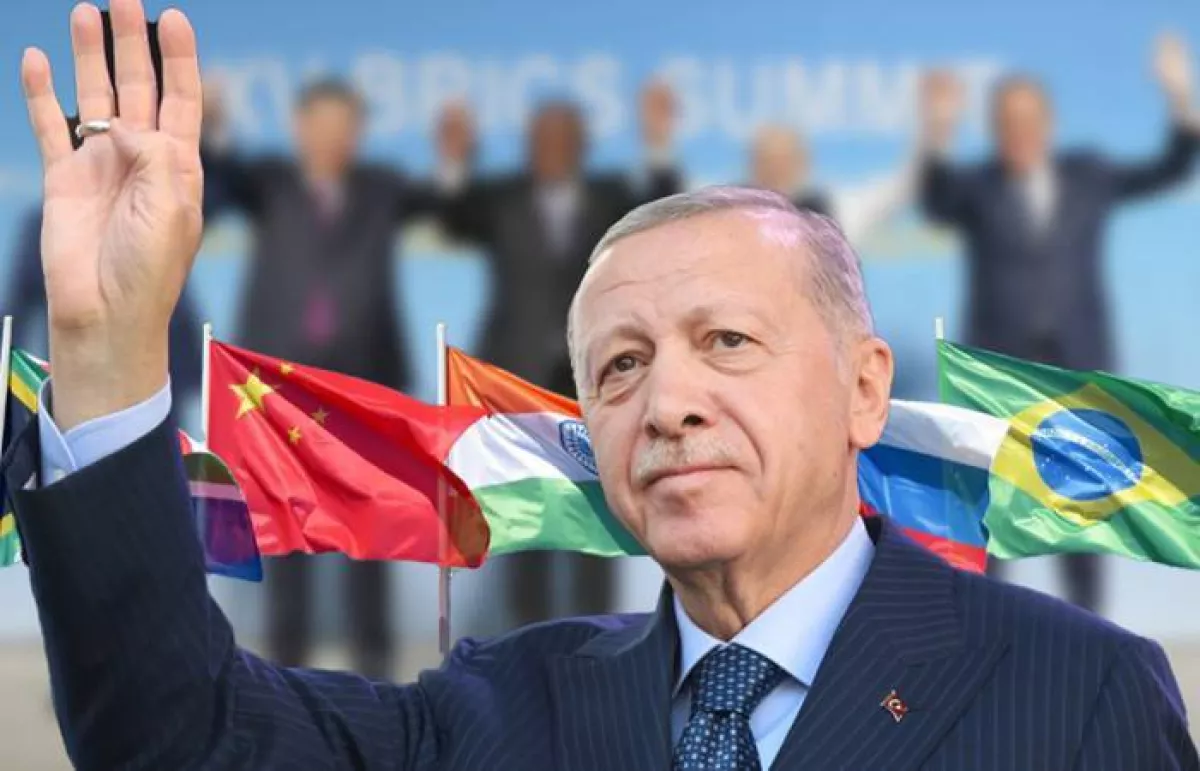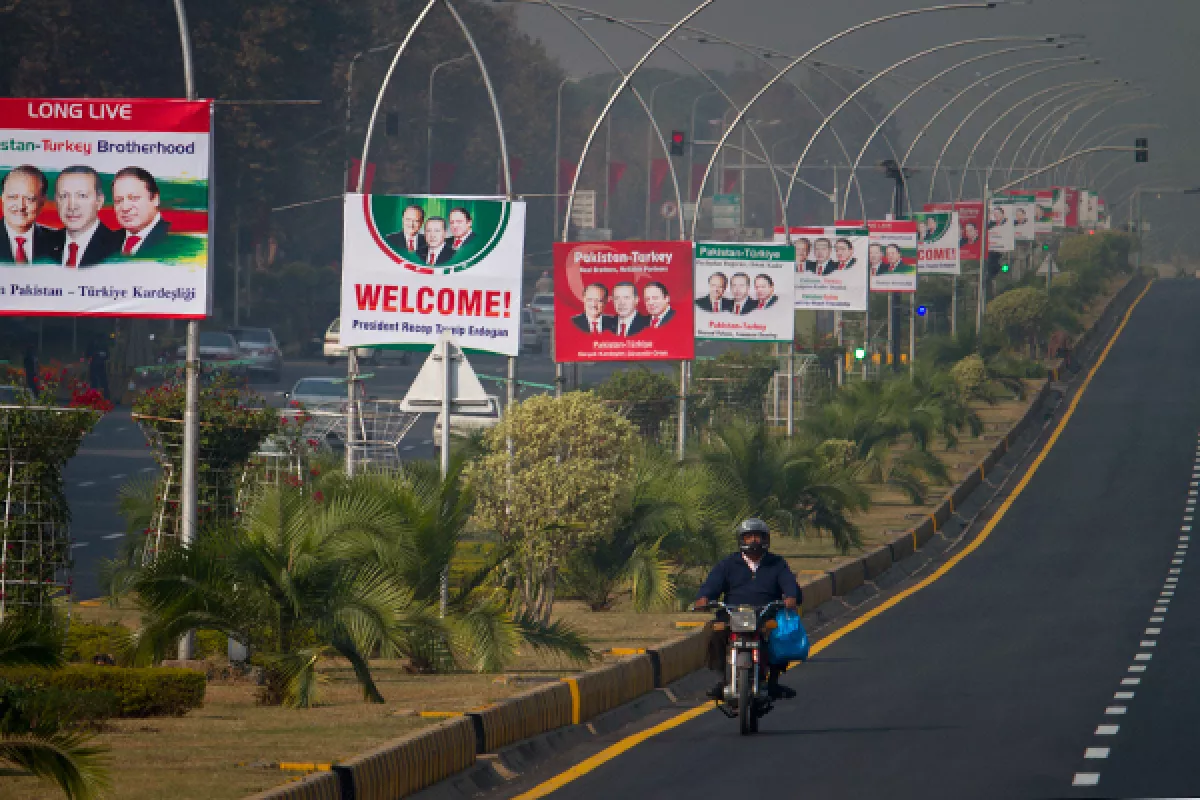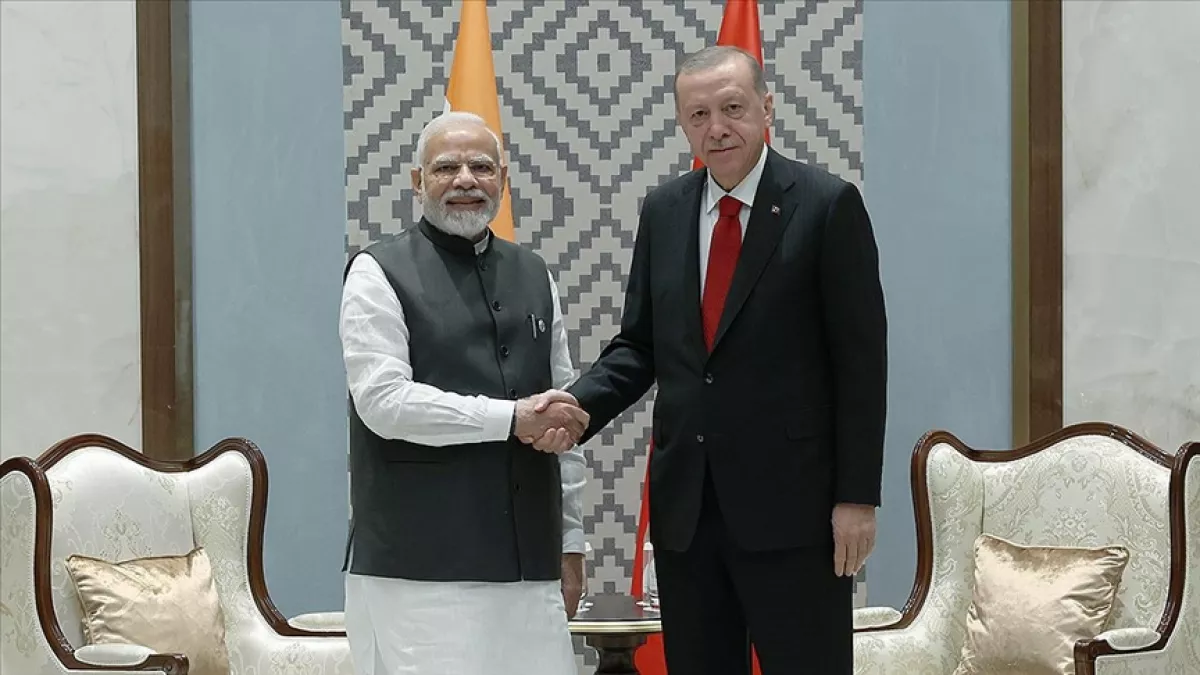India - Türkiye: A complicated path to cooperation Bridging divides
The urgent departure of Turkish President Recep Tayyip Erdoğan from the BRICS summit held in Kazan at the end of October sparked numerous rumours and speculations. Although the official reason for the Turkish leader's return to his homeland was a terrorist attack in Ankara, several foreign media outlets suggested that his exit was related to disagreements among the meeting participants.
The most striking statement on this matter came from the German publication Bild. Citing the words of Sinan Ülgen, a former Turkish diplomat and expert from the Carnegie Foundation, German journalists reported that India's opposition is hindering Türkiye's entry into BRICS. According to the tabloid: "Turkish President Recep Tayyip Erdoğan wants to join the BRICS alliance and submitted an application for membership before the 16th summit of the alliance. But for now, he has to bury this idea."
Sinan Ülgen stated that the reason for such behaviour from Delhi is rooted in the good relations between Türkiye and Pakistan. Erdoğan's visit to Kazan was driven by Ankara's desire to demonstrate its independence from the EU and Türkiye's multi-vector foreign policy, which is part of NATO and seeks to enter emerging structures of the eastern bloc. This configuration would allow the Turkish president to deepen his role as an international mediator.

This publication has been cited numerous times by global media, but soon after, the Center for Combating Disinformation of the Turkish Presidential Administration refuted the claims made by Bild. In a document released by the Turkish side, it was stated: "The issue of membership for other countries in BRICS was not on the agenda of the expanded leaders' meeting at the summit in Kazan, which our President Recep Tayyip Erdoğan attended. The assertions that India is an obstacle to Türkiye's entry into BRICS are not true."
Following this, Sinan Ülgen backtracked. The expert claimed that the editorial staff of Bild distorted his words, omitting some important nuances. He noted that India did not "veto" Türkiye's membership in BRICS but is instead "taking a cautious approach." Ülgen remarked that "countries like India and Brazil oppose the rapid expansion of BRICS. They believe that, while there are no principled objections, it is necessary to wait a little longer. At this moment, a unified opinion on this issue has not yet been reached within BRICS."
The "sensational" news has turned into a failed political provocation, the motives of which are transparently evident. Türkiye's rapprochement with BRICS is understandably causing dissatisfaction in Brussels, and such informational leaks are intended to create a sense of instability in the emerging alternative to the Western world order. In response to the rumours, President Erdoğan reiterated: "As Türkiye, we want to strengthen our ties with BRICS. We already have bilateral relations and cooperation with the countries in this group. BRICS and other international platforms are factors that strengthen us economically. We cannot ignore them."
However, the topic of the complex Turkish-Indian relations, which have been actively developing over the past several years, truly deserves separate attention.
In the last five years, trade volumes between the two countries have increased from $8 billion to $10 billion. Türkiye supplies India with machinery and equipment, pearls, crude oil, and precious stones. In turn, India exports iron, steel, mineral oils, and bituminous substances to Türkiye. Turkish companies have invested in India's machinery and infrastructure sectors, while Indian businesses are investing capital in Türkiye's pharmaceutical and automotive industries. Ankara and New Delhi are actively conducting joint scientific research in defence and aerospace.
Before the COVID-19 pandemic in 2019, Türkiye welcomed more than 230,000 Indian tourists. In 2021, this number fell to over 50,000, as the tourism flow had not yet recovered. By 2022, during the peak season, around 30,000 Indian guests began arriving in Istanbul and the beaches of Antalya each month.
However, longstanding political contradictions over many international issues remain a stumbling block to fruitful cooperation between the two countries. One such issue is the Kashmir problem. Türkiye is an ally of Pakistan, India's traditional regional rival. After India revoked Article 370 of its constitution in August 2019, which granted special status to the states of Jammu and Kashmir, Turkish President Erdoğan seized every opportunity to escalate discussions on the Kashmir issue. In turn, Indian Prime Minister Narendra Modi has actively engaged with the governments of Greece, Cyprus, and Armenia in an effort to strengthen a regional bloc of states opposing Türkiye.

However, the Turkish president has recently taken several steps aimed at smoothing over the contradictions surrounding the Kashmir issue. Speaking at the 78th session of the UN General Assembly, Erdoğan remarked that "another event that will boost regional peace, stability, and prosperity in South Asia will be the establishment of a just and lasting peace in Kashmir through dialogue and cooperation between India and Pakistan." Experts interpreted these remarks by the Turkish leader as a move to halt the "internationalization" of the Kashmir conflict.
There are also disagreements between the two countries on other international issues. For instance, defence contracts worth several tens of millions of dollars were signed between Armenia and India in 2020 and 2022. Delhi has also expressed concern over humanitarian and educational programs that Ankara provides for Muslims in India, which include support for non-governmental organizations, grants for talented students, and incentives for emigration to Türkiye.
At the same time, political and economic trends, according to several experts, will push Türkiye and India toward interaction, if not mutual rapprochement.

During the Shanghai Cooperation Organization summit in Uzbekistan in September 2023, the Turkish president and the Indian prime minister met for the first time since Modi cancelled his initial visit to Ankara in 2019 in protest against Türkiye's stance on the Kashmir issue.
Following the earthquake in Kahramanmaraş, India sent a rescue team to assist those affected and set up a field hospital. Turkish President Recep Tayyip Erdoğan has repeatedly referred to India as "the largest trading partner in South Asia." Both countries also share common interests in combating terrorism and extremism and have been implementing joint projects in this area in recent years. Additionally, it is important to note that Türkiye has been pursuing a "zero problems with neighbours" policy, aimed at resolving contentious issues with partners on the global stage.
Thus, there are positive trends in the relationships between Türkiye and India, as well as between Türkiye and BRICS today, although it is clear that the process of mutual rapprochement will take many more years.








